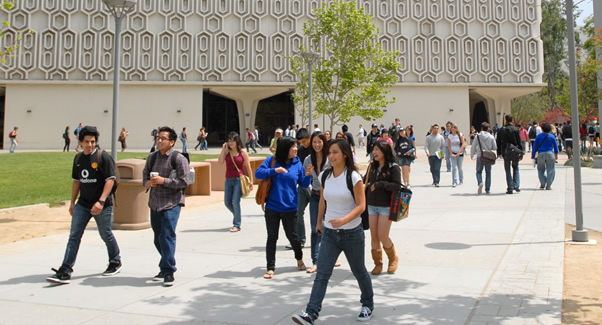Proving Our Worth
Upcoming Site Visit Is Part of Three-Year Reaccreditation Process
February 17, 2010
What is WASC?
The Western Association of Schools and Colleges is the accrediting commission for senior colleges and universities and is responsible for the evaluation of the quality and effectiveness of colleges and universities offering the baccalaureate, graduate and doctorate degrees in California, Hawaii, Guam and the Pacific Basin.
Cal State Fullerton was first accredited by WASC in 1961 and most recently reaccredited in 2000 — the first year that the university, along with several of its sister campuses, was asked to create a self-study that examined the institutions' progress toward meeting its self-defined mission. Prior to 2000, the regional accreditation process involved clear-cut directives based on nine standards and multiple substandards.
Next month, Cal State Fullerton will be rolling out facts and actions to prove that the campus meets the rigorous standards for reaccreditation by the Western Association of Schools and Colleges.
After three years of a self-review evaluation involving approximately 150 campus members, Cal State Fullerton is preparing for the March 10-12 visit by a WASC team that will focus on the university’s resources, structures, processes and policies, including the capacity to assess student learning.
“The upcoming March visit, called the Capacity and Preparatory Review, is the first of two mandatory on-site reviews. The second visit will take place 18 to 24 months after the first, and it will focus on our educational objectives and our commitment to educational effectiveness,” said Dorota Huizinga, associate vice president of graduate studies and research, and accreditation liaison officer. “After the second visit WASC Senior Commission will render a final judgment regarding reaffirmation of our accreditation.”
“The accreditation process gives us an opportunity to self reflect on our accomplishments and challenges, provide evidence of our academic quality and continue to improve our educational effectiveness,” said President Milton A. Gordon.
Accreditation, Gordon noted, is the primary means by which colleges and universities assure quality to students and the public. It provides evidence of accountability and credibility.
Other benefits to the campus community:
- provides the campus with an effective tool to improve itself through self-study, goal-setting and assessing its activities;
- is necessary for access to such federal funds as student aid and federal grants
- makes for a smoother transition of credits to another college or university;
- a degree from an accredited institution is formally recognized as appropriate evidence of academic achievement; and
- accreditation status is important to employers when evaluating credentials of job applicants and when deciding whether to provide tuition/fee support for employees seeking additional education.
“For this reason, we ask that members of the campus community take part in this three-day visit by attending one of the open meetings scheduled for the evaluation team’s site visit or by sending an email to share your thoughts directly, and in confidence with the WASC team,” said Huizinga.
Emails to the WASC team may be sent to: Wasc2csuf@yahoo.com.
The visit schedule, including the time and place of the open meetings, will be announced to the campus community as soon as it is confirmed by the visiting team, Huizinga added.
For more information, including a copy of the university's capacity and preparatory review report, “Charting Our Campus Future,” go to http://www.fullerton.edu/wasc.


